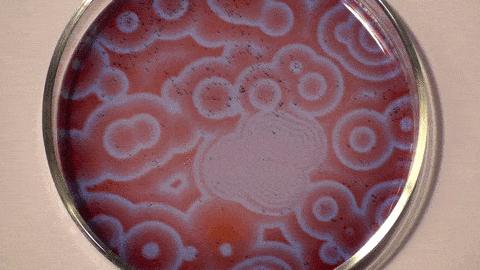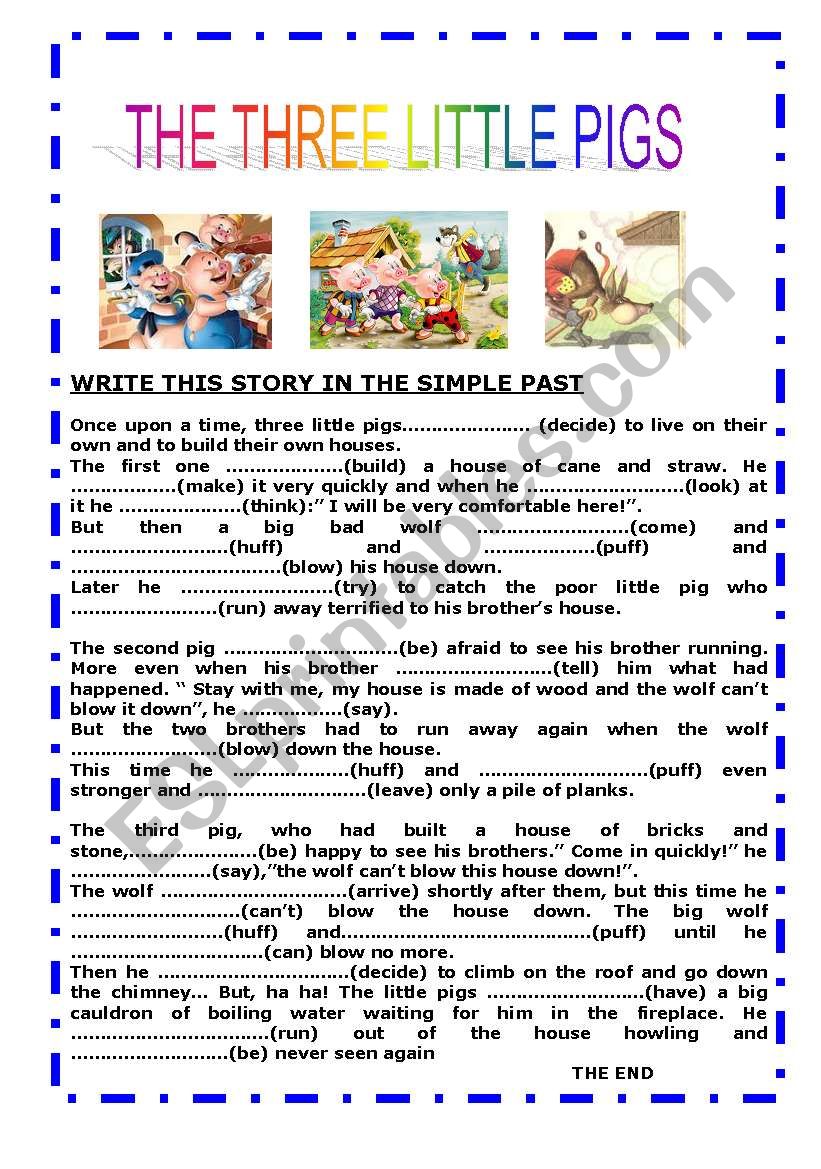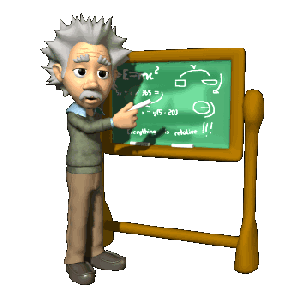
martes, 16 de junio de 2020
RESUMEN CONCEPTOS GRAMATICALES
Hola a todos/as, como os prometí aquí os he puesto un resumen con los principales conceptos gramaticales. ¡Espero que os sea de utilidad!


miércoles, 10 de junio de 2020
ADJECTIVES
Cuando nos encontramos con varios adjetivos delante de un nombre, el orden de colocación es el siguiente:
Ej. A pretty, big, red and white hat.


COMPARATIVES
Con 1 ó 2 sílabas, añadimos "ER" ej. small-smaller
Con 1 sílaba acabado en "e", añadimos "R" ej. nice-nicer
Con 1 sílaba acabado en vocal+consonante, doblamos la consonante y añadimos "ER" ej.big-bigger
Con 2 sílabas si acaba en -y, quitamos "y" añadimos "IER" ej. lucky-luckier
Con 2 ó más sílabas, añadimos "MORE" ej. interesting- more interesting
Algunos adjetivos de 2 sílabas pueden ir de las dos formas,con "er" o con "more son: los que acaban en -ow, -le, -er y polite, quiet, common. ej. Sally is more polite than me= Sally is politer than me.


SUPERLATIVES
Con 1 sílaba, añadimos "EST", ej,weak-weakest
Con 1 sílaba terminado en "e", añadimos "ST" ej. nice-nicest
Con 1 sílaba acabado en vocal+consonante, doblamos la consonante y añadimos "EST ej. big-biggest
Con 2 sílabas acabado en "Y", quitamos "y" añadimos "ier" lucky-luckiest
Con 2 ó más sílabas, añadimos "MOST", interesting- most interesting.
Algunos adjetivos de 2 sílabas pueden ir de las dos formas,con "est" o con "most", son: los que acaban en -ow, -le, -er y polite, quiet, common. Ej Mary is the clevest girl in the class= Mary is the most clever girl in the class.


Cuando nos encontramos con varios adjetivos delante de un nombre, el orden de colocación es el siguiente:
Ej. A pretty, big, red and white hat.


COMPARATIVES
Con 1 ó 2 sílabas, añadimos "ER" ej. small-smaller
Con 1 sílaba acabado en "e", añadimos "R" ej. nice-nicer
Con 1 sílaba acabado en vocal+consonante, doblamos la consonante y añadimos "ER" ej.big-bigger
Con 2 sílabas si acaba en -y, quitamos "y" añadimos "IER" ej. lucky-luckier
Con 2 ó más sílabas, añadimos "MORE" ej. interesting- more interesting
Algunos adjetivos de 2 sílabas pueden ir de las dos formas,con "er" o con "more son: los que acaban en -ow, -le, -er y polite, quiet, common. ej. Sally is more polite than me= Sally is politer than me.


SUPERLATIVES
Con 1 sílaba, añadimos "EST", ej,weak-weakest
Con 1 sílaba terminado en "e", añadimos "ST" ej. nice-nicest
Con 1 sílaba acabado en vocal+consonante, doblamos la consonante y añadimos "EST ej. big-biggest
Con 2 sílabas acabado en "Y", quitamos "y" añadimos "ier" lucky-luckiest
Con 2 ó más sílabas, añadimos "MOST", interesting- most interesting.
Algunos adjetivos de 2 sílabas pueden ir de las dos formas,con "est" o con "most", son: los que acaban en -ow, -le, -er y polite, quiet, common. Ej Mary is the clevest girl in the class= Mary is the most clever girl in the class.


miércoles, 3 de junio de 2020
PRESENT SIMPLE OR PRESENT CONTINUOS
PRESENT SIMPLE:
 3º persona del singular (he, she, it)
3º persona del singular (he, she, it)


Son 5 juegos, en la columna de la izquierda
vas cambiando y jugando a cada uno de ellos:
¿Cuándo usar uno u otro? Este truco os ayudará:
PRESENT SIMPLE / PRESENT
CONTINUOS
| ↓ | ↓ | ||
| ↓ ↓ ↓ | ↓ ↓ ↓ |
EVERY DAY NOW
SUJETO + VERBO
The present simple is u sed:
- for general truths and facts, e.g. The Earth goes around the Sun.
- to describe routines, e.g. I get up at six o´clock every day.
- for situations which are always or generally true at the present time, e.g. She lives in Tokyo.
-en afirmativa se añade "S" al verbo
- en negativa e interrogativa se usa DOES

PRESENT CONTINUOS (NOW)
SUJETO + TO BE + VERBO CON ING
The present continuos is used:
- to describe something that´s happening at the moment, e.g. Jhon´s sitting in the living room and reading a book.
- to describe something that´s true now, but is temporary, e.g. I´m living in London at the moment.
- for events or actions happening in the present but not necessarily at the moment, e.g. I´m learning Spanish at school.

Repasa con estos juegos:
https://wordwall.net/es/resource/1847782/present-continuous-present-simple-kids
- Ordenar por grupo
- Aplasta topos
- Verdadero o falso
- Abre la
caja
- Ahorcado
jueves, 28 de mayo de 2020
TEST- NATURAL UNIT 5 "CHEMICAL REACTIONS"

CLICK HERE FOR THE TEST:
https://forms.gle/3Fx4o3873sBzwG3Q9
miércoles, 27 de mayo de 2020
STORY " THE THREE LITTLE PIGS"

Audio:
https://drive.google.com/file/d/1052O2INW5QOHsX_RVEFbSqwoWOk773AP/view?usp=sharing
Thank you Sam!
ACTIVITIES IN YOUR NOTEBOOK:
1- Answer the question: Which is the lesson of the story?
2- Complete the worksheet ( regular and irregular verbs).
Si tenéis dudas, entrad en Wordreference, escribid el verbo y en las opciones que vienen justo debajo en azul pinchad: conjugator (EN); en el recuadro escribid de nuevo el verbo y os saldrán en todos los tiempo verbales.

Si la queréis imprimir este es el enlace, cuidado que es solo la segunda hoja porque el documento tiene 7 hojas en total.
https://www.eslprintables.com/reading_worksheets/tales_and_stories/the_three_little_pigs/THE_THREE_LITTLE_PIGS_567312/
Audio:
https://drive.google.com/file/d/1052O2INW5QOHsX_RVEFbSqwoWOk773AP/view?usp=sharing
Thank you Sam!
ACTIVITIES IN YOUR NOTEBOOK:
1- Answer the question: Which is the lesson of the story?
2- Complete the worksheet ( regular and irregular verbs).
Si tenéis dudas, entrad en Wordreference, escribid el verbo y en las opciones que vienen justo debajo en azul pinchad: conjugator (EN); en el recuadro escribid de nuevo el verbo y os saldrán en todos los tiempo verbales.

Si la queréis imprimir este es el enlace, cuidado que es solo la segunda hoja porque el documento tiene 7 hojas en total.
https://www.eslprintables.com/reading_worksheets/tales_and_stories/the_three_little_pigs/THE_THREE_LITTLE_PIGS_567312/
martes, 26 de mayo de 2020
SOCIAL
WHAT ARE ALL THOSE LINES ON THE MAP?

AUDIO PAGE 64-65
https://drive.google.com/file/d/1DqoaiLixMXke3VcwS1LTjpd22XyDKsR1/view?usp=sharing
domingo, 24 de mayo de 2020
TEST- IRREGULAR VERBS 6

GOOD MORNING MY FRIENDS!!
THIS IS THE TEST, LET´S GO!!!!
Read carefully because in some questions you have to write INFINITVE- PAST SIMPLE -PAST PARTICIPLE, e.g. infinitve- past simple- past participle of verb "venir": COME-CAME-COME, always in CAPITAL LETTERS (mayúsculas) (usa un guión para separar las palabras)
https://forms.gle/ck6rRBrSikowSRQM8

GOOD MORNING MY FRIENDS!!
THIS IS THE TEST, LET´S GO!!!!
Read carefully because in some questions you have to write INFINITVE- PAST SIMPLE -PAST PARTICIPLE, e.g. infinitve- past simple- past participle of verb "venir": COME-CAME-COME, always in CAPITAL LETTERS (mayúsculas) (usa un guión para separar las palabras)
https://forms.gle/ck6rRBrSikowSRQM8
miércoles, 20 de mayo de 2020
FERMENTATION

USEFUL INFORMATION:
Why does pizza dough rise?
|
When yeast feeds on the sugars in the dough, carbon
dioxide is produced as a product. This gas causes the dough to rise.
|
How is fermentation
useful?
|
We use it to preserve foods, to make cheeses,
yoghurt, alcohol, dough, etc.
|
Can you think of any other
ways we use fermentation?
|
-To make vinegar from wine
-To preserve olives and
pickles
-To make antibiotics and other medications
-To make ethyl alcohol
-To treat waste water
|
THIS IS A VIDEO ABOUT FERMENTATION:
https://www.youtube.com/watch?v=5pxe6YW7pO4
AUDIO PAGE 63
https://drive.google.com/file/d/1O86X752Iytt6hZKZfjdaD4ZeI8MP9GFB/view?usp=sharing
ENGLISH
Os dejo este cuadro y un juego en el drive para practicar:
DO, MAKE
, GO , HAVE
DO
|
Do is used to talk
about work, Jobs and activities
|
-
Do someone a favour
-
Do the shopping
-
Do your best
-
Do your homework
|
MAKE
|
Make is generally
used to talk about creating or producing something
|
-
Make a cake
-
Make your bed
-
Make a choice
-
Make friends
-
Make a mistake
-
Make a phone call
-
Make up your mind (aclararse)
|
GO
|
Go is often used
with gerunds
|
-
Go swimming
-
Go camping
-
Go shopping
-
|
HAVE
|
Se usa como expresiones
|
-
Have lunch ( not eat)
-
Have breakfast
-
Have dinner
-
Have a shower
|
martes, 19 de mayo de 2020
OXIDATION


WHY DO BANANAS TURN BLACK?
Because bananas contain a hormone that changes colour when it is oxidised.
WHY DO PAPERS TURN YELLOW?
https://www.youtube.com/watch?v=htv35U_t5Xo
AUDIO page 62
https://drive.google.com/file/d/1BS4CTPsdYJzn89E1fQnUIRGhq-f_TuwG/view?usp=sharing
ENGLISH
Video con más ejemplos: https://www.youtube.com/watch?v=PaXNVF7W2Aw
Os dejo también este cuadro en el drive por si queréis descargarlo o imprimirlo:
https://drive.google.com/file/d/1aIAActnKJhl4SRmVl0G9vUejJR97WuJ3/view?usp=sharing
VERBS FOLLOWED BY INFINITIVE / -ING FORM
If a verb is followed by another verb, the
second verb is either in the -ing
or the infinitive, with or without TO.
Sorry, there isn’t a rule. You have to learn which verbs go with which
pattern.
VERBS
FOLLOWEB BY - ING
|
ADMIT
CONSIDER
DETEST
ENJOY
CAN´T HELP
FINNISH
SUGGEST
|
My sister admitted lying her boss.
They consider
travelling by plane.
I detest
watching scary movies.
He enjoyed
playing football with them.
You can´t
help cooking right now.
I´ve almost finished doing my homework.
Jack suggested
going to the cinema tonight.
|
VERBS
FOLLOWED BY TO + INFINITIVE
|
AGREE
ASK
EXPECT
HAPPEN
HOPE
INTEND
PROMISE
PERSUADE
REFUSE
WOULD LIKE
|
I agree to buy these tickets.
He´s asked them to play a football match.
She expected to pass the test.
I happen to see Bob at least once a
week.
I hope to do it well.
You intended to sell your books.
She promised to take me there.
I´ve
persuaded my cousin to come shopping with me.
We refuse to accept your offer
I´d like to go home quite soon.
|
VERBS
FOLLOWED BY INFINITIVE
WITHOUT TO
|
LET
MAKE
|
My parents don´t let me stay out late.
My mum made me do my homework.
|
VERBS
FOLLOWED BY EITHER FOR WITH NO
DIFFERENCE IN MEANING
(Ya sea con –ing o en infinitivo da
igual, se pueden usar las dos formas y no cambia su significado)
|
BEGIN
CONTINUE
LIKE
LOVE
PREFER
START
|
I like reading at breakfast = I like to read at breakfast.
She continued studying = She continued to study.
|
SOME
VERBS CHANGE THEIR MEANING DEPENDINGD ON IF THEY ARE
FOLLOWED BY – ING OR TO
|
REMEMBER
FORGET
STOP
TRY
|
He remembered to do his homework
( He did his homework, he didn´t forget) acordarse de
She remembered meeting him years before
(She had to memory of meeting him) recordar
|
Os dejo también este cuadro en el drive por si queréis descargarlo o imprimirlo:
https://drive.google.com/file/d/1aIAActnKJhl4SRmVl0G9vUejJR97WuJ3/view?usp=sharing
Suscribirse a:
Comentarios (Atom)





